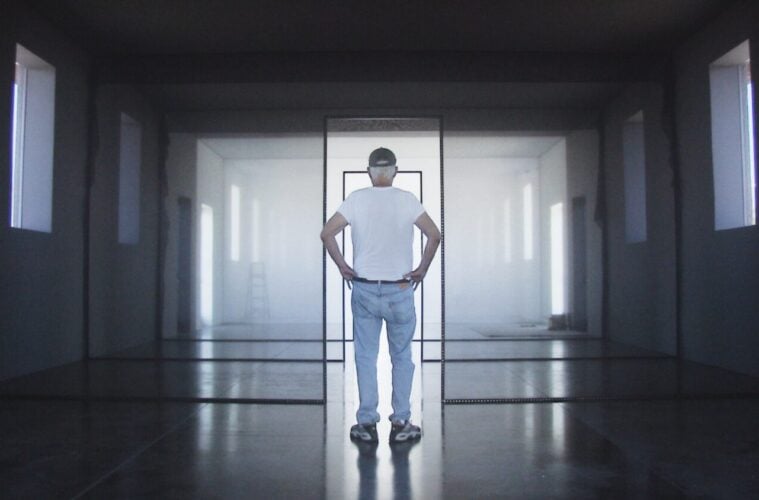Artists and writers get the documentary film treatment all the time, and increasingly, that takes the form of unearthing hidden figures in the arts to correct the imbalances of history. But for some reason, in 2023, the spotlight has swung back to illuminate some influential, if enigmatic and mostly white, men who helped shape American and global culture at the turn of the century. New films on painters Anselm Kiefer and Roy Lichtenstein, Light and Space icon Robert Irwin, cultural impresario Michael Chow, and writers Tom Wolfe, Allen Ginsberg, and John Le Carré—all but two of whom are dead—are spicier than the usual hero-worship hagiographies (though with the exception of the Lichtenstein piece, they certainly are that). They each take stylistic liberties, intriguing cinematic risks and poetic turns, corralling A-list interviews, archive access, and in some cases years of vintage and brand new footage and spinning it all into the neatest of documentarian tricks—reviving an old tale to tell a new story.
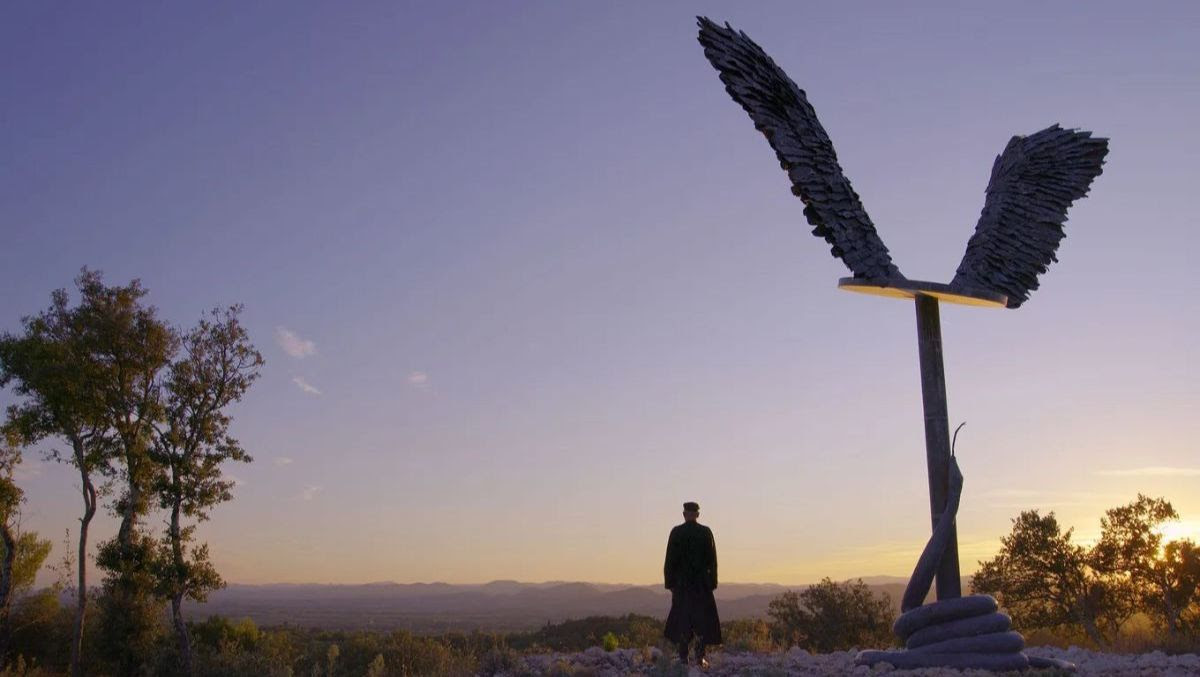
Anselm: A Film by Wim Wenders
Anselm, dir. Wim Wenders.
As much a film by Wim Wenders as a film about Anselm Kiefer, this remarkable study falls more in the category of a “cinematic experience” than an informational volume—the rare documentary it is very much worth seeing in a theater. Shot in 3D and 6K-resolution, the assertively uncanny visual intensity is a brain-bender—but in Wenders’ hands it also serves the story. Because Kiefer (b. 1945), is himself known for working at an overwhelming scale across years of plans and labor, chasing a sublime transcendence through embracing human heartbreak. Kiefer’s vision involves painting, sculpture, architecture, literature, myth, war, worship—but 50 years in, according to both Wenders and the art world as well as his own ambition, he’s far from finished with his life’s work. At Laemmle’s Glendale through December 28. wim-wenders.com.
Watch the trailer:
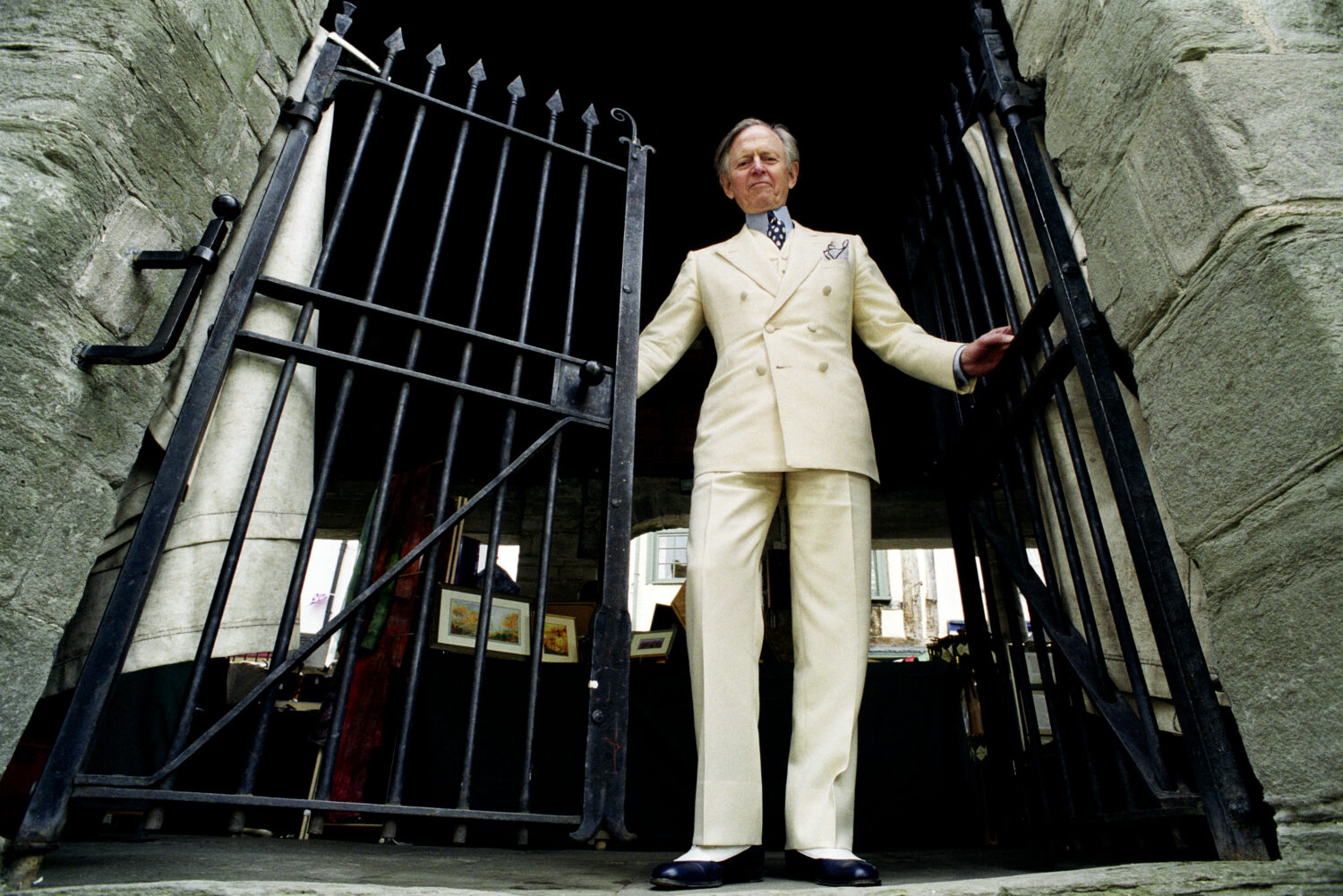
Author Tom Wolfe at the Hay literary festival in Hay-on-Wye, UK.
Radical Wolfe, dir. Richard Dewey.
First and foremost a storyteller Tom Wolfe (1930-2018) worked as journalist but his efforts went far beyond expanding the scope of that profession, to touch on popular culture, film, literature, and America’s understanding of its own history, identity, and evolution. Wolfe immersed himself in his stories, going deep in getting to know hippies, astronauts, stockbrokers, athletes, and poets—with indelible results like The Right Stuff, The Bonfire of the Vanities, and The Electric Kool-Aid Acid Test. Blessed with the voluminous interviews with the loquacious author himself, and augmented by conversations with luminary colleagues, the film excels at contextualizing Wolfe’s innovation within his own milieu, reaching forward to illuminate his legacy for today. Streaming on Amazon, iTunes, Netflix, etc. kinolorber.com.
Watch the trailer:
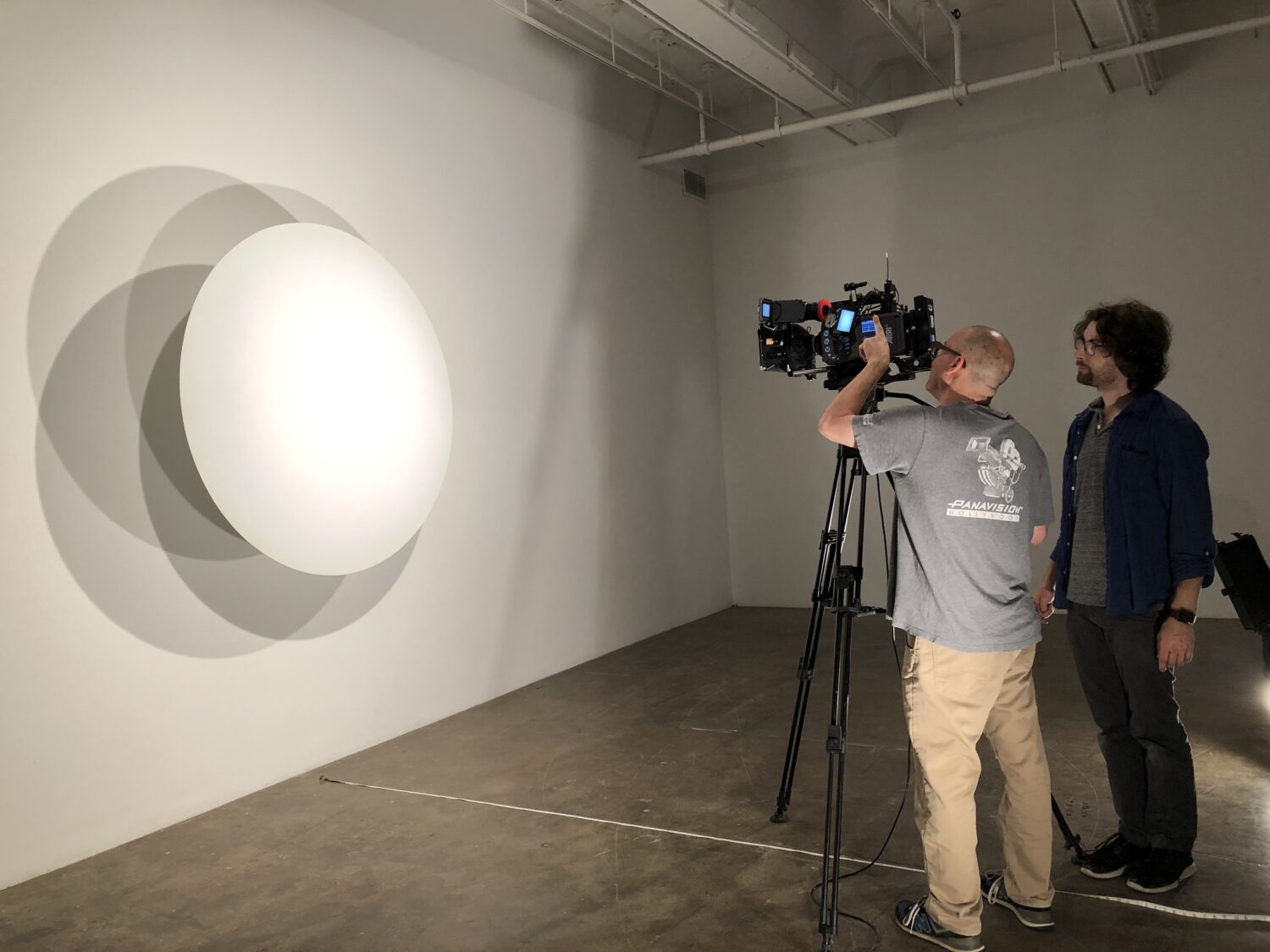
David Hollander, Loic DeLame with a Robert Irwin Disc Painting at Pace Warehouse
Robert Irwin: A Desert of Pure Feeling, dir. Jennifer Lane.
Released both tragically and poetically on the eve of the artist’s death, this bright film on the life and work of California Light and Space artist Robert Irwin (1928-2023) stands as his final message to the world. Since the 1960’s Irwin’s investigations into the nature of perception—and therefore of reality itself—made him a driving force of modern West Coast art. Though a prolific painter, his best-known work has come to be his affecting, ostensibly minimalist objects and installations that force the viewer to define the parameters of their own senses. To encounter an Irwin is to physically feel yourself in the act of seeing—a physiological setup that quickly gives way to a philosophical one. If that sounds too erudite, as the film imparts, remember Irwin labored in the invisible zone of the “artist’s artist” for years, during which time he made money gambling at racetracks and teaching, with students like Chris Burden, Ed Ruscha, Alexis Smith, and Vija Celmins. When he died, he was immersed in his masterpiece—a permanent installation in Marfa,Texas, and this film is now your only chance to get a tour from the man himself. Streaming on Amazon and Apple TV. greenwichentertainment.com.
Watch the trailer:
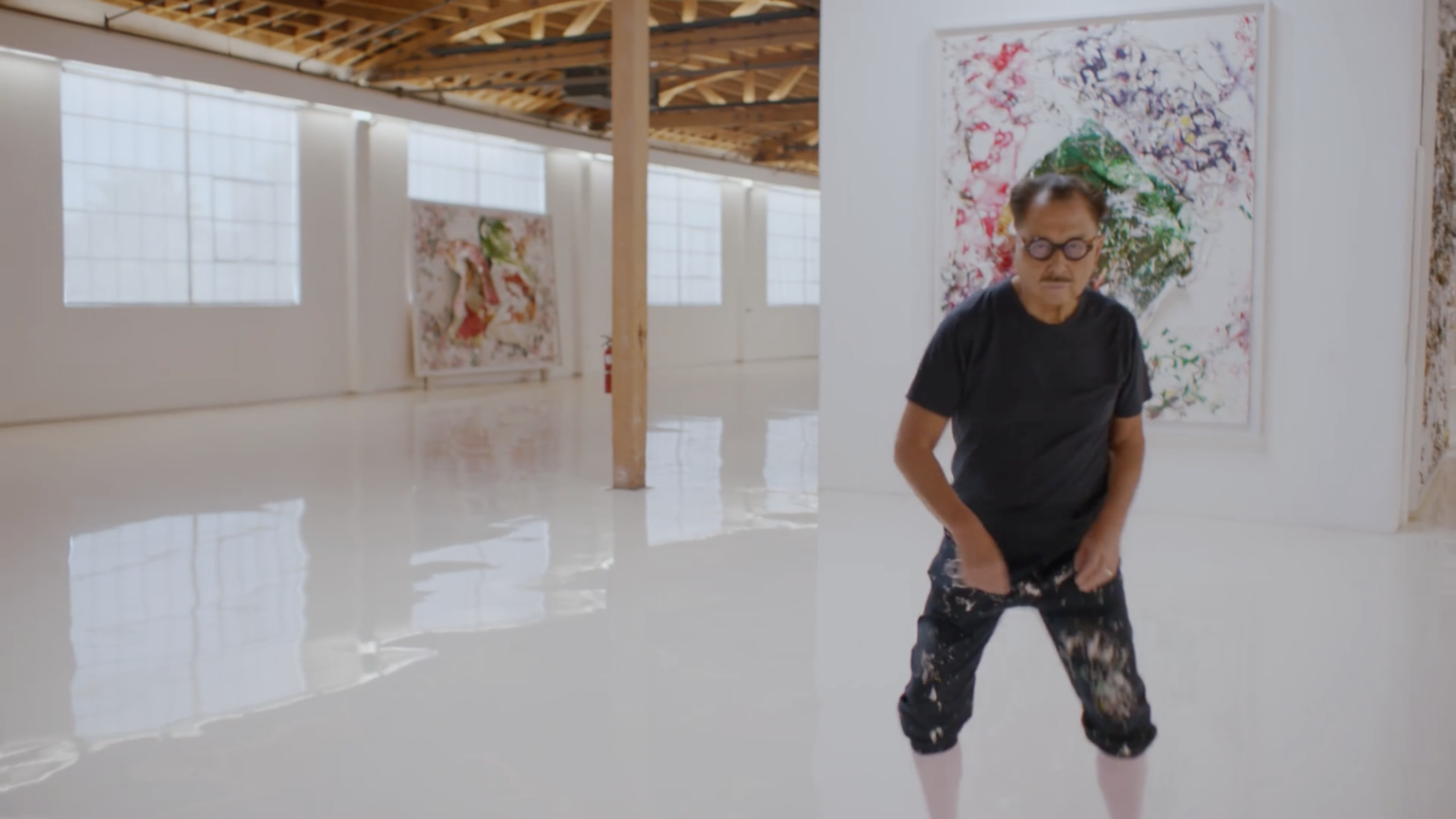
Still from aka Mr. Chow, film still (Courtesy of HBO)
aka Mr. Chow, dir. Nick Hooker.
The personal journey of the man born Zhou Yinghua in 1930s Shanghai to become the iconic restaurateur, underrecognized painter, and cultural impresario now known as Mr. Chow fairly begs to be made into a documentary, and honestly it would make an incredible biopic as well. The life of Michael Chow (b. 1939) is the stuff of legends among a certain slice of the sexy art-meets-Hollywood world of Beverly Hills of the 1960s through 80s, as his destination restaurant was the place to be—a kind of Studio 54 in dinner party form. From Old Hollywood to New York Pop, a flashy documentary on the spot’s incredible cast of regulars, cameos, and lookers-on would be satisfying enough—but the wisdom and wonder, the heart and soul, of this film is the entire world of Michael Chow’s that unfurls behind the flash. As the film movingly follows, he was painfully separated from his father—a renowned Beijing opera singer—when he was sent to school in England at 13, thence embarking on a career in acting, painting, and finally dining as well as serious art patronage that was all steeped in remembering his roots while also profoundly reinventing himself. Streaming on HBO Max. hbo.com.
Watch the trailer:
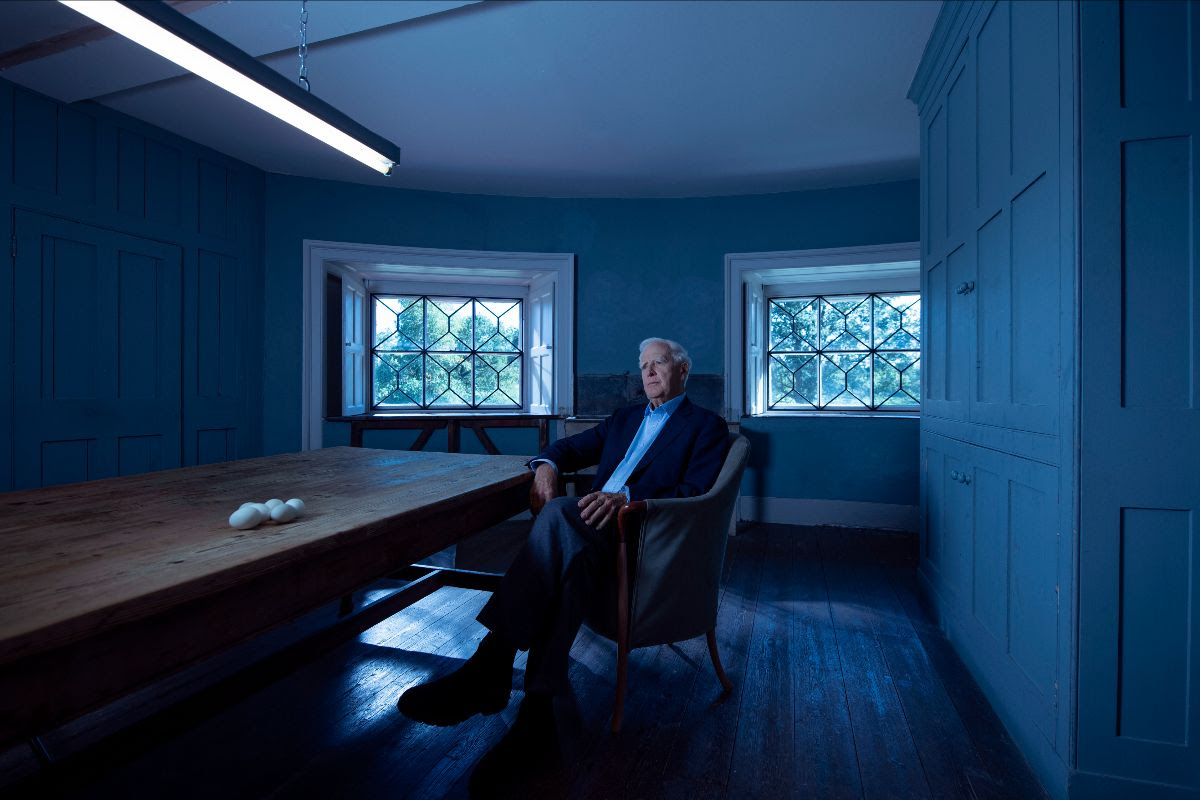
John le Carré (David Cornwell) in The Pigeon Tunnel (Courtesy of Apple TV)
The Pigeon Tunnel, dir. Errol Morris.
They would bring the big guns when it was time to further unmask the world’s best-known spy. Academy Award-winning documentarian Errol Morris is, in retrospect, more than the clear choice to direct a film that unravels its mysteries like a double helix in which everything and nothing is true. Former British spy David Cornwell (1931-2020) was better known to the world as John le Carré, author of genre-defining spycraft stories (and eventually landmark movies) like The Spy Who Came in from the Cold, Tinker Tailor Soldier Spy, The Night Manager, and The Constant Gardener. Like the books, the film moves across decades from the Cold War to today, presenting Cornwell in intimate interviews that turned out to be his last, along with archival and historically framed footage, and Morris’ forte—the dramatic reenactment. Drawing on the author’s bestselling memoir The Pigeon Tunnel: Stories from My Life, the film also recreates its mood in an original score by Philip Glass. Apple TV. tv.apple.com.
Watch the trailer:
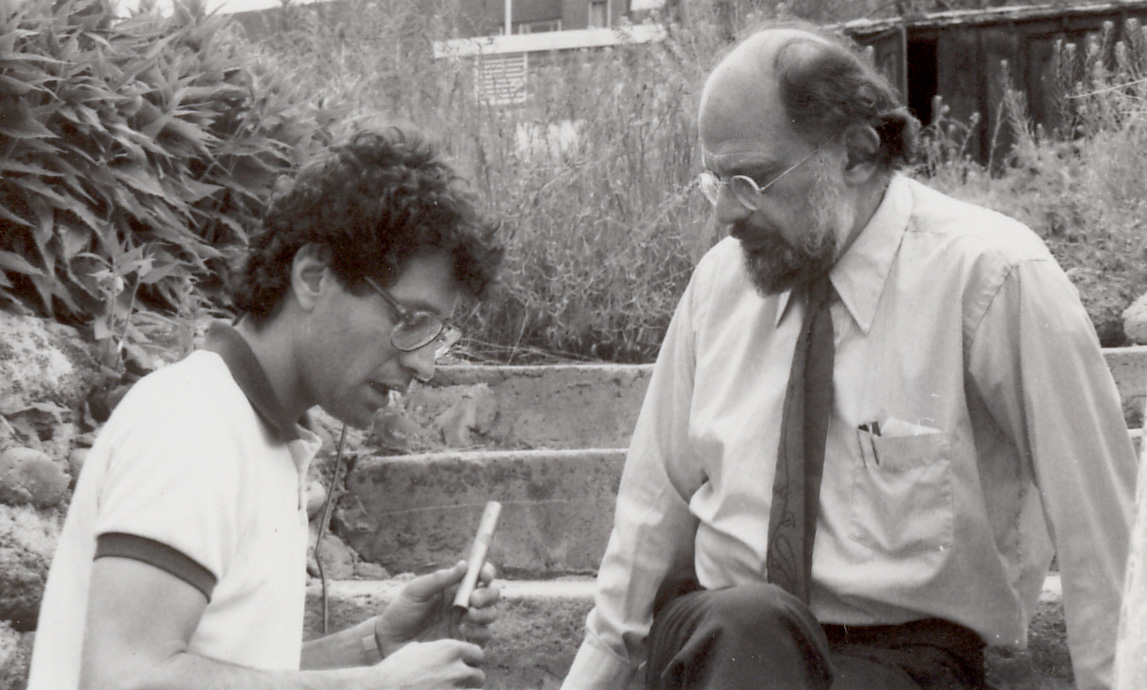
Jerry Aronson and Allen Ginsberg, Boulder, CO, 1978
The Life and Times of Allen Ginsberg, dir. Jerry Aronson.
The film’s own summary says it best when it claims, “Visionary, radical, spiritual seeker, renowned poet, founding member of a major literary movement, champion of human rights, Buddhist, political activist and teacher—Allen Ginsberg (1926-1997) and his remarkable life shaped the very soul of American counterculture.” It’s really hard to argue with or improve on that characterization (other than to mention that Ginsberg was also a talented photographer), as the man’s own legacy has now proved its worth as it continues to inspire not only a new generation of poets—but even poetry beyond human consciousness. To craft this film Aronson accompanied the poet on 25 years of travels, adventures, misadventures, appearances, creative sessions, downtime, and flirtations with celebrity. The film premiered at the 1993 Sundance Film Festival, but has now been digitally remastered and made available to stream for the first time—and its new Deluxe Two-Disc DVD edition includes a further six hours of never-seen materials and interviews with his friends, family and contemporaries such as Bono, Johnny Depp, Philip Glass, Ken Kesey, Timothy Leary, Paul McCartney, Yoko Ono, Patti Smith, Andy Warhol and many others. Streaming everywhere. firstrunfeatures.com.
Watch the trailer:
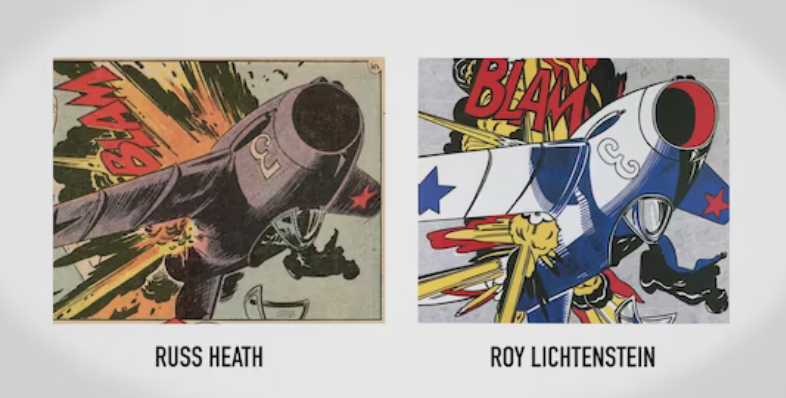
A side-by-side comparison of Russ Heath’s original comic-panel art, from DC Comics’ “All American Men of War #89 (1962), and Roy Lichtenstein’s 1962 painting “Blam!” (Hussey-Cotton Films)
WHAAM! BLAM! Roy Lichtenstein and the Art of Appropriation, dir. James L. Hussey.
The one film that’s less of a love letter to its subject is this accusatory case-making platform for robust debates about originality, commentary, and authenticity. Roy Lichtenstein (1923-1997) was a foundational figure in the creation of the Pop Art movement of the 1960s along with New York contemporaries like Warhol, Johns, and the rest of the gang. But Lichtenstein’s unabashed citations went beyond appropriating the languages of brands, advertising, and commerce and borrowed directly from comic books. The appeal of this cheeky work, its melodramatic deracination from story, the use of analog pixelation referring to both comics’ and Pointillism’s visual tropes via his signature Ben Day dots—it’s clear why audiences would be drawn to its charm, nostalgia, and oomph. But many in the comics world, including and especially the individual artists whose original art Lichtenstein took for his own, refuse the lofty mantle of “appropriation” and call it what they feel it is—plagiarism and theft. In the art and authorship wars, who has the moral high ground? Now on DVD & VOD. kinolorber.com.
Watch the trailer:

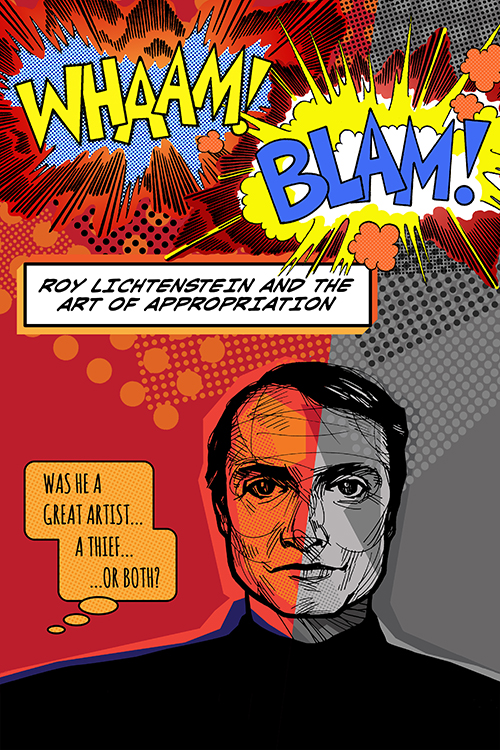
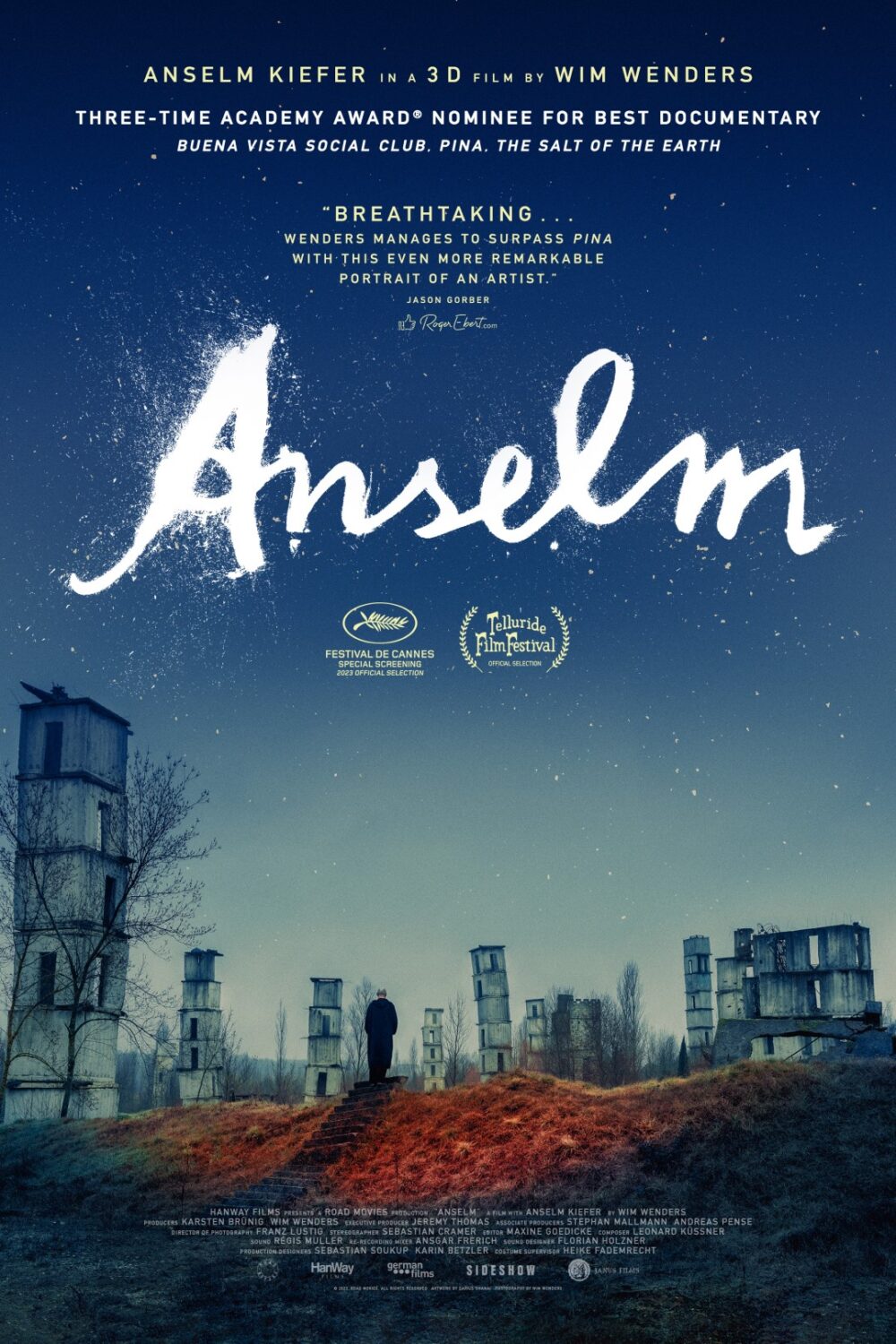
/Editor’s note: The disclaimer below refers to advertising posts and does not apply to this or any other editorial stories.
Advertising disclosure: We may receive compensation for some of the links in our stories. Thank you for supporting LA Weekly and our advertisers.

